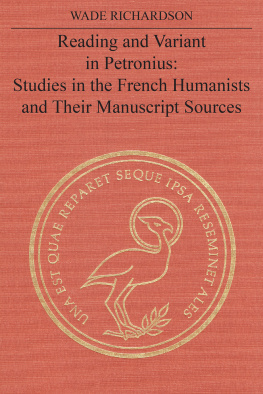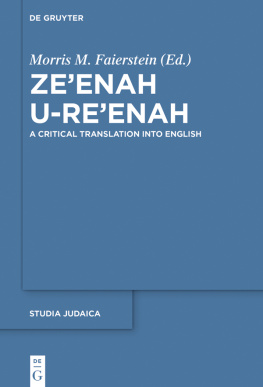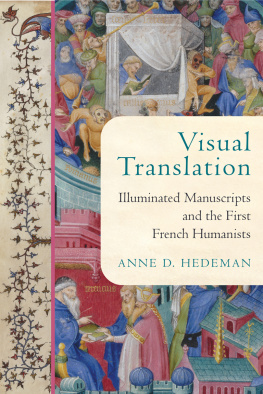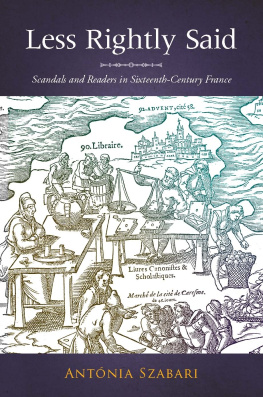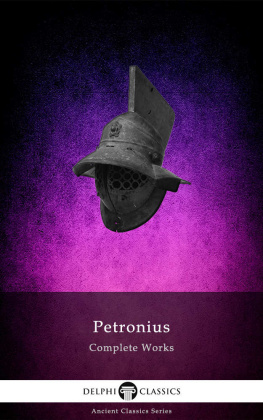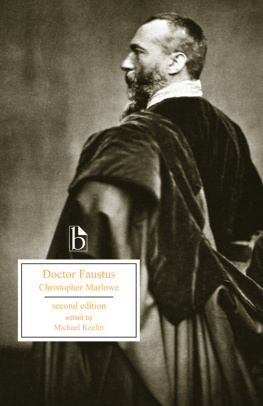Reading and Variant in Petronius
Perhaps half of the Satyrica of Petronius, Neros minister for taste, exists only in late, second-hand sources: sixteenth-century editions, manuscript apographs, and commentaries. All of this material has therefore been subject to scholarly mediation, deliberate or inadvertent, recorded and unrecorded. The result is a legacy of readings and variants, which may or may not be from actual manuscripts, that are inconsistent when they should agree, and agree when they should differ. This performance is paralleled in portions of the humanist editions founded on extant manuscripts as well; thus, once these manuscripts are identified, a quite detailed profile of manuscript use, misuse, and non-use may be drawn up and applied to the mediated content in an effort to identify the missing manuscripts and secure readings of the best quality and pedigree (eliminating ghost-words, errors, emendations, and so on).
This book will be of use to classical scholars interested in textual tradition, to specialists in Petronius and the novel, and to historians of the Renaissance for its demonstration of how key figures in French humanism, to whom we owe much, acquired their material and created their editions. It evaluates their performance at a private, fundamental level and assesses the results for the Petronius text.
WADE RICHARDSON is a member of the Department of Classics, McGill University.
PHOENIX
Journal of the Classical Association of Canada
Revue de la Socit canadienne des tudes classiques
Supplementary Volume XXXII
Tome supplmentaire XXXII
WADE RICHARDSON
Reading and Variant
in Petronius:
Studies in the French Humanists
and Their Manuscript Sources
UNIVERSITY OF TORONTO PRESS
Toronto Buffalo London
University of Toronto Press Incorporated 1993
Toronto Buffalo London
Printed in Canada
ISBN 0-8020-2866-7

Printed on acid-free paper
Canadian Cataloguing in Publication Data
Richardson, Wade, 1943
Reading and variant in Petronius :
studies in the French humanists and their manuscript sources
(Phoenix. Supplementary volume ; 32 = Phoenix.
Tome supplmentaire, ISSN 0079-1784 ; 32)
Includes index.
ISBN 0-8020-2866-7
1. Petronius Arbiter Criticism, Textual.
I. Title. II. Series: Phoenix. Supplementary
volume (Toronto, Ont.) ; 32.
This book has been published with
the help of a grant from
the Canadian Federation for the Humanities,
using funds provided by the Social Sciences and
Humanities Research Council of Canada.
OPTIMIS PARENTIBUS
CONTENTS
PREFACE
Todays Satyrica is but a remnant of the comic novel usually attributed to Titus Petronius Niger, Neros elegantiae arbiter in the pages of Tacitus. The archetype, which dates to near AD 800, presents roughly consecutive episodes late in the narrative. It is formed from the aggregate of three overlapping texts created in the same era by deliberate curtailments of varying kinds. is the longest branch or hyparchetype, though one section of it plainly starts as an abridgment and then discontinues; the Cena is a complete transcription of this very section only; and O truncates the narrative and omits the Cena altogether.
The latter branches are communicated in extant manuscripts: the Cena in a unique text, H, copied in the Renaissance from a much earlier exemplar though not disseminated until after 1650 (thus unknown to the French humanists); and O in three medieval manuscripts, BRP, and fifteen Renaissance manuscripts (of which one produced the editio princeps) sired by a sibling of P. There is no witness to , apart from some florilegia, that does not rest on the efforts of scholars, editors, commentators, and copyists in the sixteenth century.
The lines and text of the two branches based on the extant manuscripts are sufficiently established not to require a new treatment (though it has been necessary to broach again the connection of B and P with manuscripts used by the humanists), but the special challenge of s readings, as recorded by about a score of French scholars working between 1560 and 1600, though often recognized, has not yet been fully met. It is here that the emphasis of several of the following studies will be found.
This was an altogether impressive age for classical scholarship, the flowering of the French Renaissance, and several of its acknowledged ornaments Scaliger, Cujas, Turnbe, Pierre Daniel, Pierre Pithou, de Thou, Muret, men who attained eminence principally in other fields turned their minds and hands, often informally, to Petronius. What drew their interest now was the new and remarkable text of this author that came to light after the mid-century in two medieval manuscripts, Benedictinus and Cuiacianus, based on . Professional curiosity may have been piqued by the clear indication from these manuscripts that the fragmentary Satyrica with which the scholars had been familiar from two preceding editions was a clumsy foreshortening, undertaken mainly to eliminate or tone down erotic content. There is some evidence that this facet of the new material prompted hesitation over a proper scholarly response, which may have affected not only the transmission history but the survival of the manuscripts themselves.
For Benedictinus and Cuiacianus have perished, and with them has gone the A witness free from humanist intervention. Recovery of A readings might well have been secured by a full, faithful apograph or manuscript collation. Though some were indeed made, they too are missing, and we are left essentially with only the contaminated products of sixteenth-century scholarship editions and commentaries. For these were constructed by taking whichever was available of the two -based manuscripts, O manuscripts (now sought out and used for the first time), and florilegia, for collation against the familiar editions, usually both c and s. The scholars did not always exercise good judgment; for instance, there was excessive reliance on the early editions at the expense of the manuscripts, and they were quite unequal to the need to identify all the sources clearly and to cite the readings and variants fully and consistently. Their practices, especially insofar as they concern -derived material, which cannot be checked independently, have produced three tasks for this volume: to determine sources, to evaluate scholarship, and to establish text.
ACKNOWLEDGMENTS
The major problem in the study of the text [of Petronius] is to unravel the tangled skein of sixteenth-century work on this author In the twenty years that have passed since I first read these words of B.L. Ullman and encountered K. Mllers editio maior I have slowly been gathering material and courage for this task, and for an edition which would follow it. The set of studies in this volume marks the result, to date. Their writing was commenced in 1988, during a sabbatical in Europe, and has continued up to the present, under the specific stimuli of Mllers third edition, the articles of M.D. Reeve and R.H. Rouse, and the ongoing multi-volume edition of C. Pellegrino. My debt to the above scholars will be clear, and all (except Ullman, naturally) have met my queries, in correspondence and in person, helpfully and in a sense of solidarity.
I should give an account here of the resources, both material and human, that were available to me during the gestation of this book. Apart from the recognized standards of published textual scholarship (and here I include, in addition to the above, the editions of F. Bcheler and the monograph of H. van Thiel), I was able to have at my elbow a microfilm typescript of the life task of E.T. Sage on the manuscript tradition of Petronius, envisaged in 1915 and worked on not quite to completion for the last twenty years of his life. The original sits in the Joseph Regenstein Library of the University of Chicago, unhappily shorn of the first third of the collation. It is of inconsistent merit, requiring a good editing, but with many kernels, duplicated in the largely independent work of Mller and van Thiel, of truth. Sage was assisted by an extraordinary stable of graduate students, whom, basically, he pointed in the direction of problems and set to collating. I have had full access to their results in the complete dissertations and theses on microfilm made for K.F.C. Rose, on loan from J.P. Sullivan, whose collaboration with Rose was cut off so sadly by Roses death in 1967. An outline of the work of the Sage school may be found in collected abstracts in the
Next page
